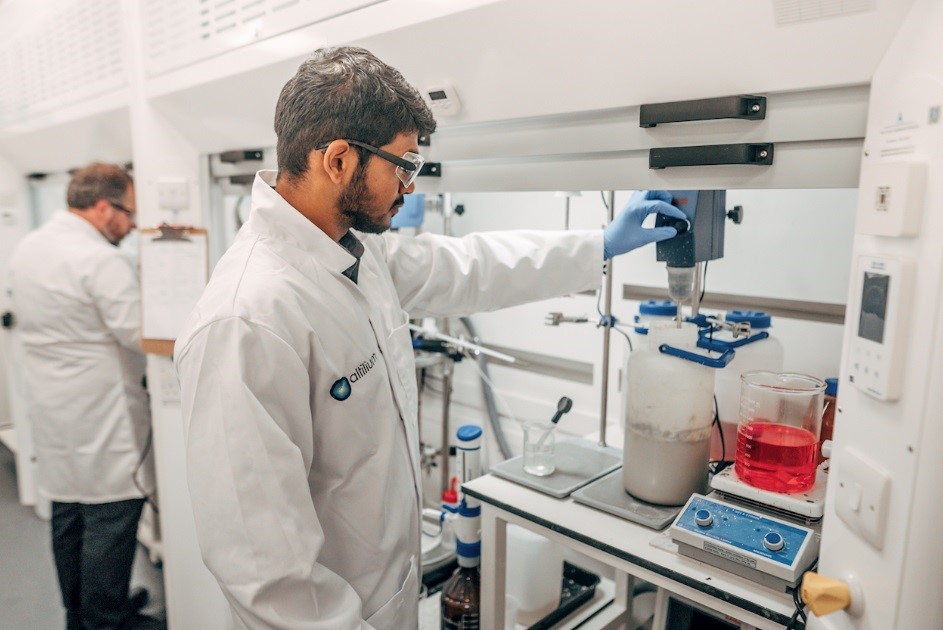

Altilium, a UK-based clean technology group, has recently earned over £700,000 (US$889,000) in UK government innovation funding for two collaborative research projects that aim to recover valuable materials from mine waste. The projects are in partnership with CPI and Camborne School of Mines (CSM) and focus on developing environmentally friendly processes for recycling rare earth elements (REE), copper, and aluminium from mine tailings.

Altilium's efforts to recover critical battery materials from end-of-life EV batteries have set a solid foundation for these projects. These projects are centred around the Medet concession, a mine tailings site located in central Bulgaria, which is under Altilium's control.
Instead of relying solely on the extraction and refinement of virgin mineral resources, which are both resource and carbon-intensive, Altilium is exploring opportunities to recover precious metals from existing mine waste. The goal is to support the shift towards a circular economy, reduce new mining, and mitigate waste. Detailed analysis has already revealed significant residues of copper, iron, aluminium, and other metals in the mining waste, making this a promising avenue to explore.
At Altilium's Technology Center in Tavistock, a new state-of-the-art solvent extraction pilot plant will be used for hydrometallurgical processing of the tailings. The primary focus of this work will be on developing innovative leaching techniques and efficient separation methods. The goal is to minimize waste generation and minimize the environmental impact of the process.
ReTail (Recovery of copper, aluminium and other battery metals): Altilium, in partnership with CPI, has been granted funding under round 6 of UKRI's Faraday Battery Challenge to support the advancement and commercialization of advanced battery technologies in the UK. As part of this initiative, Altilium aims to recover copper, aluminium, and other battery metals from tailings at its European site, reducing reliance on traditional mining practices and supporting the growth of the supply chain in the UK battery sector.
The project aims to establish the feasibility and environmental impact of processing these tailings to extract these valuable materials, which can be used to produce copper foils for current collectors and other EV components. With the growth of green transport and energy markets, demand for these metals will only increase, and the project aims to develop clean and efficient methods that can be scaled for industrial applications. The goal is to support the UK's net zero emissions target by 2050 by developing new supply options for these essential materials, which are critical to the success of the green energy revolution.
ReREE (Recovery of rare earth elements): Altilium is collaborating with the Camborne School of Mines on a groundbreaking project called ReREE, which aims to recover rare earth elements (REEs) from mine tailings using innovative hydrometallurgical processes. This feasibility study is part of the Critical Materials for Magnets Competition, a program under the UK government's circular critical materials supply chains (CLIMATES) initiative, which has provided £15 million in funding for research to strengthen the supply of critical materials. The project will not only assess the technical and economic viability of the process but also evaluate its environmental impact to ensure sustainability. The tailings will be characterized geochemically and mineralogically by CSM, and commercial feedback on the recovered materials will be provided by Pensana Plc, which is establishing an independent, sustainable REE supply chain with midstream processing to produce magnet metal in the UK.
REEs are essential to the UK's electrification ambitions, particularly in the development of EV motors and offshore wind turbines, as well as other technological applications. With the increasing adoption of EVs and the growth of offshore wind, the demand for REEs is expected to skyrocket by 2050. This presents a significant opportunity for UK businesses since the global market for REEs is projected to grow from $2.5 billion to $5.5 billion by 2028. However, the extraction and production of REEs can have negative environmental impacts, and China currently dominates over 90% of the supply chain for permanent magnets.
If you wish to learn more about the recycling sector in the aluminium industry, please have a look at AL Circle's recently revamped report, World Recycled Aluminium Market Analysis.



Responses






